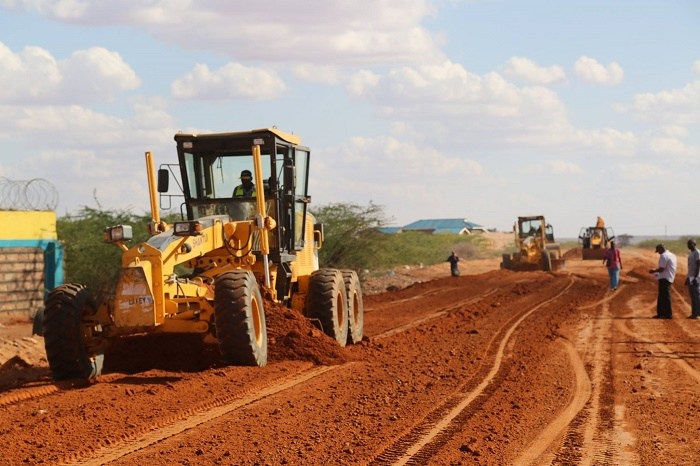Construction of the 530km Lamu-Garissa-Isiolo Highway, is set to start mid next year. The project will commence with the first section of the Lapsset infrastructure project. According to Transport Secretary James Macharia, the government had entered a deal with a consortium to fund the project to a tune of US $620m in initial capital investment.
Moreover, the Kenya National Highways Authority (KeNHA), the project’s implementing agency, had entered into a commercial agreement with Lamu Road Consortium comprising of Group Five Proprietary limited, a South African consortium and Development Bank of Southern Africa (DBSA) through a public-private partnership.
“KeNHA is signing an agreement with this consortium for the commencement of early works of the Lamu-Garissa-Isiolo road which is 530km and is part of the 2,000 km Lapsset corridor, slated to start by June next year,” said Mr. Macharia during the agreement signing in Nairobi.
The Cabinet secretary said early works of the project had been delayed as a result of lack of financing. However, the government had opted to go ahead with the commercial agreement before finalizing the financial agreement later on for the entire project.
“One of the issues in the project has been finance but because it is so key we could not wait until the financing is put in place or other elements of the consortium, so we are now starting the development of the project and in the process we shall sign a financial agreement for the entire project,” said Macharia.
Also read:Kenya signs contract for Lamu-Isiolo US $602m road construction
Four years
The project will take approximately four years to be complete and will be run by the Lamu Road Consortium (LRC). Additionally, operations and maintenance phase will be run for 25 years after the completion of the project.
“LRC will operate the road while maintaining high performance standards equivalent to a motorway to enhance throughout of transit vehicle and also reduce vehicle operating cost,” said the CS.
The Lamu Port-South Sudan-Ethiopia Transport (Lapsset) corridor – which is Eastern Africa’s largest and most ambitious infrastructure project with seven components was launched in 2013 and has a budget of approximately US $19.4bn.
The CS gave update of sections of the project, saying the 505km Isiolo-Moyale road has been completed while construction of Loichangamatak-Nadapal road is ongoing, just as the Garsen-Witu-Lamu road.
He added that design studies are ongoing for the Isiolo-Maralal link road, Isiolo-SukutaMugie-Nginyang’ road and Nginyang’-Lokori-Lokichar road.
Undeveloped areas
“We are opening up the corridor completely to open hitherto undeveloped parts of northern Kenya to enhance the growth of the country as a result of investments in and along the corridor. “Just as we did with the Chinese in the SGR project where a certain percentage went to the locals, I believe this is the same spirit we are getting into with the company,” he said.
Group Five Chief Executive Thambo Mosai said the partnership is a show of confidence in Kenya and promised to involve local sub-contractors and labourers throughout the project. “We will utilize Kenyan sub-contractors and labourers in the process just as big companies in South Africa do,” said Mr Mosai.
Lapsset chairman Francis Muthaura hailed the agreement, saying the highway was an important outlet that would make it possible to take cargo to the hinterland and even to neighbouring countries of South Sudan and Ethiopia.
He said about 10 towns in the corridor were going to benefit from investment and development brought about by the project which is anticipated to add about 3% to Kenya’s annual GDP growth.
“The first of the 32 berths of the Lamu Port, will be completed by June, 2018. Once the port is completed we will be able to carry the cargo received by sea to hinterland,” said Muthaura.
Ready for use
KeNHA director general Engineer Peter Mundinia said that part of the corridor from Isiolo, Marsabit to Moyale was already paved and ready for use by transporters. “This will help because the cargo that congest the central part of the country will now go that way,” said Eng Mundinia.
